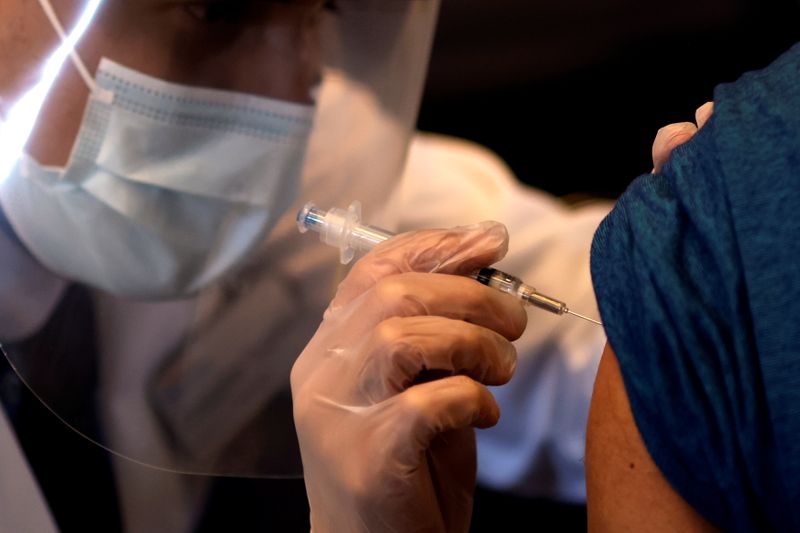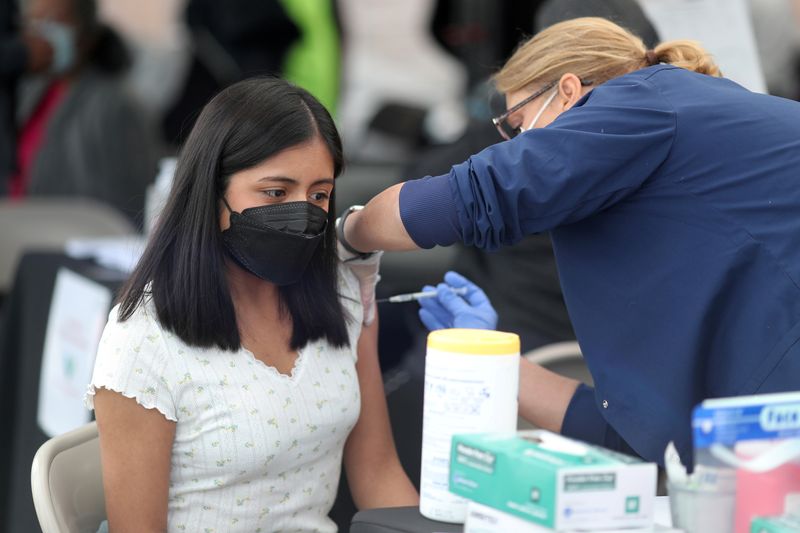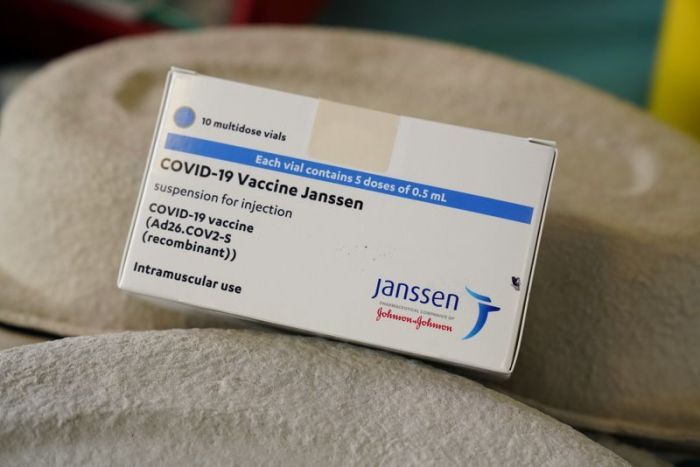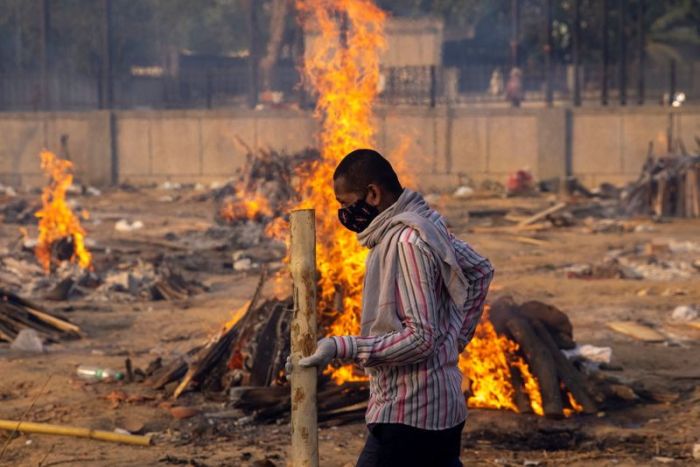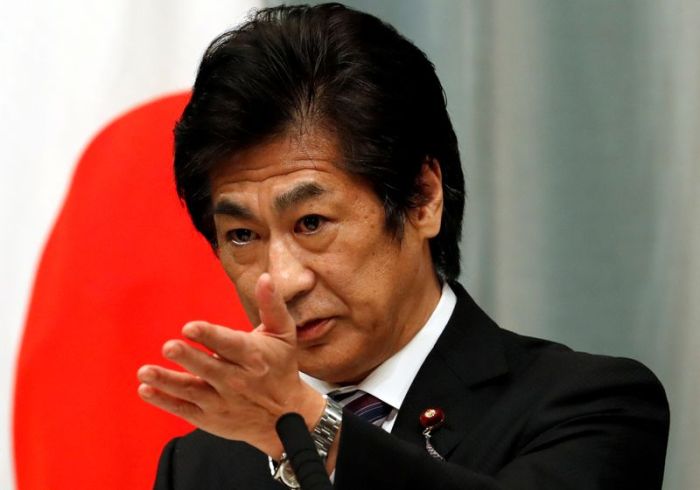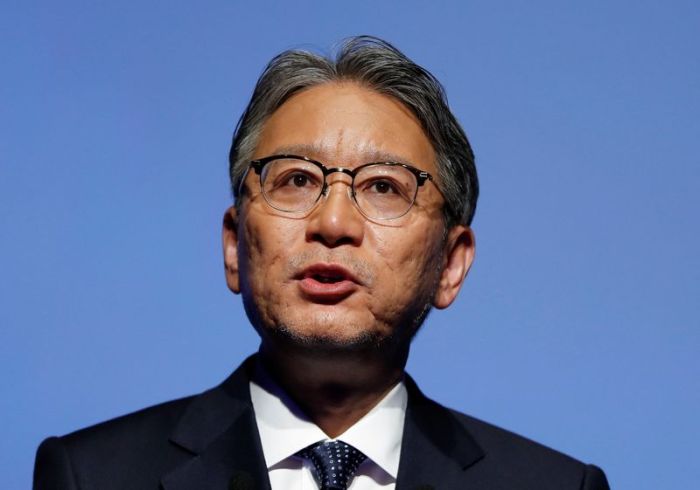(Reuters) -The European Commission said it expects to seal the world’s biggest vaccine supply deal within days, securing up to 1.8 billion doses of Pfizer and BioNTech’s COVID-19 vaccine for the next few years, as a debate rages over unfair access to shots for the world’s poorest people.
DEATHS AND INFECTIONS * Eikon users, see COVID-19: MacroVitals https://apac1.apps.cp.thomsonreuters.com/cms/?navid=1592404098 for a case tracker and summary of news.
EUROPE
* Europe’s drug regulator approved an expansion in manufacturing capacity of the Pfizer/BioNTech vaccine in Belgium, while recommending an approval for a new filling line at Moderna’s site in Spain.
* Germany and Hungary have backed a proposed lawsuit by the European Union against AstraZeneca over its failure to deliver supplies of COVID-19 vaccines according to its contract with the bloc, two EU diplomats and a source said.
* France will step up donations to the international COVAX vaccine programme in the coming months with a donation of 500,000 shots, including from suppliers other than AstraZeneca, President Emmanuel Macron said.
* The COVID-19 epidemic in England is still estimated to be shrinking, though possibly a little less quickly compared to last week, the health ministry said.
AMERICAS
* New daily cases of COVID-19 in Canada could almost double to more than 15,000 from 8,600 by the end of April unless stricter measures are taken as new coronavirus variants spread, health officials warned.
* Advisers to the U.S. Centers for Disease Control and Prevention (CDC) will meet again on Friday to consider whether it is safe to resume injections of Johnson & Johnson’s vaccine, as senior U.S. health officials prepare for a green light.
* Brazil’s COVID-19 vaccination program is being put at risk by people failing to show up for their second shot, with 1.5 million people missing appointments for the follow-up dose needed to maximize protection, according to the Health Ministry.
ASIA-PACIFIC
* People scrambled for life-saving oxygen supplies across India on Friday and patients lay dying outside hospitals as the capital New Delhi recorded the equivalent of one death from COVID-19 every five minutes. The World Health Organization (WHO) emergencies director said the country must control mobility and mixing to reduce a surge in infections.
* Japan declared “short and powerful” states of emergency for Tokyo, Osaka and two other prefectures as the country struggles to contain a resurgent coronavirus pandemic three months before the Olympics.
* Australia has reported three more cases of blood clots “likely” linked to the AstraZeneca’s vaccine, taking the total number to six, the country’s drug regulator said.
MIDDLE EAST AND AFRICA
* South Africa President Cyril Ramaphosa called on pharmaceutical companies to transfer mRNA vaccine technology to low and middle income countries “free of intellectual property barriers”. The Moderna and Pfizer/BioNTech vaccines use messenger RNA technology.
MEDICAL DEVELOPMENTS
* India’s Cadila Healthcare has started producing its potential COVID-19 vaccine for which it will seek emergency use authorisation in May or June, the company’s managing director told Reuters. It aims to make up to 240 million doses a year.
* Europe’s drug regulator reiterated that benefits of AstraZeneca’s vaccine outweigh any risks, as part of detailed guidance from ongoing reviews into rare blood clots to help individual nations determine how they will use the shot.
* Manufacturers should focus on producing as many vaccines as possible this year, but the world faces a potential supply surplus next year, Moderna’s CEO said.
ECONOMIC IMPACT
* A deluge of new orders swept through British businesses in April as the country lifted some of its COVID-19 restrictions, according to a survey that pointed to a rapid rebound for the pandemic-hit UK economy.
* German lawmakers approved a debt-financed 60 billion euro ($71 billion) supplementary budget to boost aid for businesses and healthcare during the pandemic, which would lift annual new borrowing to a record high.
(Compiled by Federico Maccioni; Edited by Bill Berkrot)

